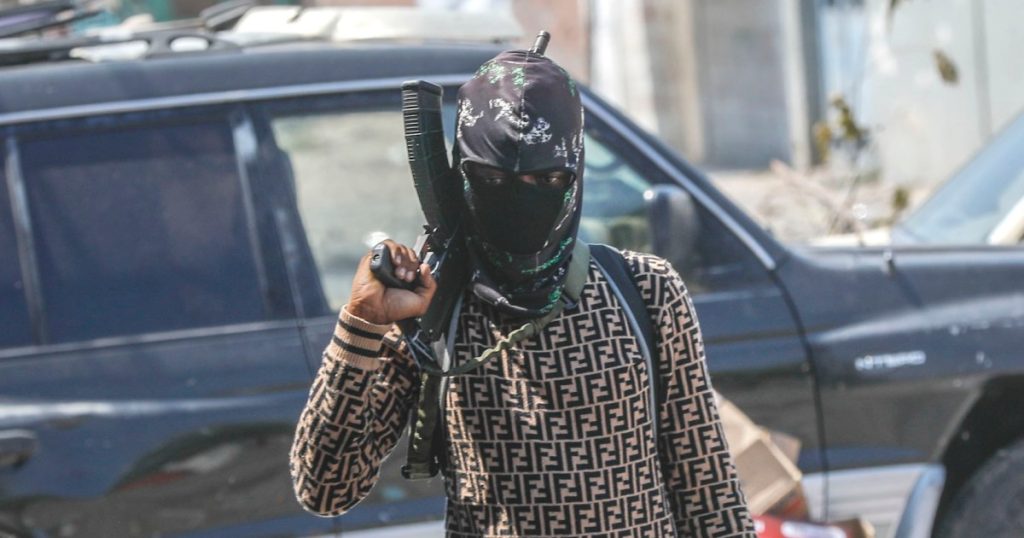In a shocking incident in Haiti, gang members armed with automatic rifles stormed through the town of Pont-Sonde, killing at least 70 people and injuring many more. The leader of the Gran Grif gang, Luckson Elan, claimed responsibility for the massacre, citing retaliation for attacks on his soldiers by police and vigilante groups. This attack resulted in over 6,000 people fleeing their homes, seeking refuge with families in nearby towns or staying in makeshift camps. The violence, which included setting fire to homes and vehicles, is one of the deadliest in recent years in Haiti, a nation plagued by massacres and a lack of justice for victims.
The killings in Pont-Sonde highlight the worsening conflict in Haiti, with armed gangs controlling much of the capital and expanding into surrounding regions. The lack of international support has contributed to the crisis, with neighboring nations deporting migrants back to Haiti. The attack in Pont-Sonde occurred with little resistance from law enforcement, leading to a high death toll and severe injuries. The Gran Grif gang, based in the Artibonite region, has been accused of numerous crimes, including kidnappings, rapes, murders, and child recruitment, with Elan recently added to the U.N. sanctions list.
Residents of Pont-Sonde had been living in fear of violence for months, with rumors circulating about a potential massacre in retaliation for their support of a vigilante group. The lack of effective intelligence gathering and law enforcement response allowed the attack to unfold unchecked. The World Food Programme has attributed food shortages in Haiti to gang activity, with farmers being extorted, crops stolen, and workers displaced from their lands. The situation has pushed millions into severe food insecurity and famine-level hunger, exacerbating the humanitarian crisis in the country.
The U.N. refugee agency has warned of disastrous shortages in food and medical supplies due to gang activities blocking humanitarian aid transport. Despite promises of support, Haiti has received only a fraction of the resources needed to address the crisis, and efforts to deploy a U.N. peacekeeping mission have faced obstacles. The violence in Haiti has resulted in over 700,000 people internally displaced in just six months, with no progress made in resolving mass killings and massacres dating back years. The gangs are believed to be armed largely with guns trafficked from the United States, fueling the ongoing conflict.
Calls for more support to address the crisis in Haiti have been reiterated by U.N. chief Antonio Guterres, as the situation continues to deteriorate. The lack of justice for victims, inadequate law enforcement response, and ongoing gang violence have created a humanitarian catastrophe in the country. International intervention and cooperation are crucial in addressing the root causes of the conflict and providing assistance to those affected by the violence. Despite the challenges, efforts to restore order and rebuild communities in Haiti are urgently needed to prevent further loss of life and displacement.













